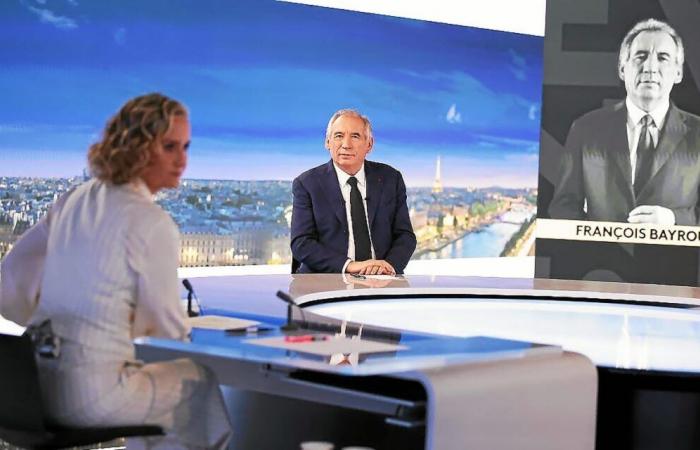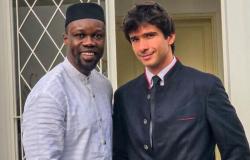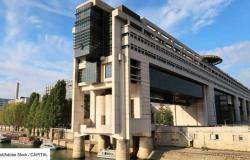
François Bayrou hoped that, “during the weekend”, the new government “would be presented”, “in any case, before Christmas”, which takes place “Tuesday evening”.
Appointed on December 13, the Prime Minister must appoint a government quickly to provide the country with a budget, interrupted by the censorship of his predecessor on December 5, but the difficulty is to pass it through a fractured National Assembly.
The Prime Minister affirmed that he wanted the resigning Minister of the Interior, Bruno Retailleau, to be a member of the government. “I think that Mr. Retailleau has shown in recent weeks and months that he has found decisions and directions that respond to part of what public opinion is asking for,” he said.
The retention of Bruno Retailleau in Beauvau irritates the PS, with whom François Bayrou is seeking to establish a non-censorship agreement.
-
3 A budget “in mid-February” but it is “not sure to get there”
François Bayrou said he hoped for the adoption of a budget “in mid-February”, although work in this direction was interrupted by the motion of censure which overthrew the previous government. “I hope we can have it in mid-February. I’m not sure I’ll succeed,” declared the Prime Minister, who clarified that he would start from “the copy that was voted on” in Parliament before the censorship of Michel Barnier’s government.
-
4 No 49.3, “unless there is an absolute blockage on the budget”
François Bayrou, without a majority in the National Assembly, affirmed that he would not use article 49.3 of the Constitution, unless there was an “absolute blockage on the budget”. “I will not use 49.3, unless there is an absolute blockage on the budget. (…) I want as much dialogue as possible. And on the other texts, I will not use 49.3, barring disaster,” declared the Prime Minister, addressing the parties “in opposition” but who “agree to dialogue” and not overthrow his government.
-
5 Retreats: “We can find a different organization”
François Bayrou said he believed that there could be another solution for financing the pension system than postponing the age from 62 to 64, as in the contested reform which was adopted in 2023.
Asked if there was another solution than raising the age to 64, the Prime Minister replied: “Yes, I think so”, recalling that he had been “an activist for points retirement “.
“We can find a different organization, but we will also have to ask ourselves the question of financing,” warned the Prime Minister, who proposed to political forces and social partners to reopen a discussion on pensions for nine months, but “ without suspending” the 2023 reform, “because, when we suspend, obviously, we never resume”.
-
6 Mayotte: a call for rapid reconstruction, “perhaps” in “two years”
François Bayrou hoped that the reconstruction of Mayotte, devastated by a cyclone, could be done in a “short” time frame, “perhaps two years”, a task which would be “superhuman”.
“I think we need to set a much shorter deadline than the five years” for the reconstruction of Notre-Dame, a comparison made by Emmanuel Macron from Mayotte, indicated the Prime Minister “I say maybe two years. I hope we get there. It’s a superhuman, immense task,” he added.
-
7 “Pain” for Sarkozy
François Bayrou said he felt “pain” after the conviction of former President Nicolas Sarkozy in the wiretapping affair to one year in prison under an electronic bracelet for corruption and influence peddling, an unprecedented sanction for a former head of state.
“I faced Nicolas Sarkozy, hard in my life, and when I learned of this verdict, it made me sad” for “him and for his people” and “I know what it is like to to find myself before the apparatus of justice and that feeling, I cannot erase it,” declared the Prime Minister, who maintains frosty relations with the former head of state. He himself was acquitted in February in the affair of the assistants of MEPs from his MoDem party in the European Parliament. The prosecution has appealed, and the date for the appeal trial has not yet been set.
Local
France





